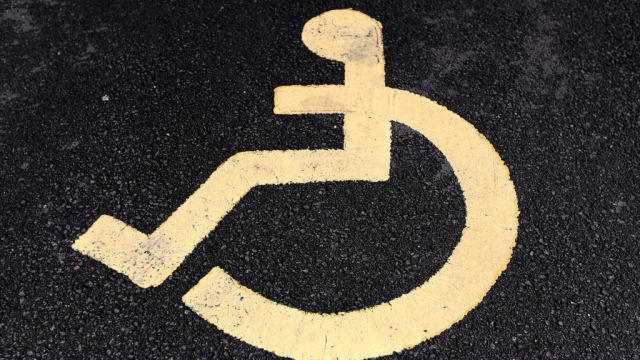A man and his son, who has a severe intellectual disability, autism and epilepsy, are asking the High Court to rule that they were wrongly denied a disabled parking permit.
Their constitutional case claims the son, aged 17, requires assistance walking and often has to be carried due to his behavioural difficulties associated with his autism and seizures linked to his epilepsy.
The father and son cannot be named by order of the court.
The Irish Wheelchair Association, which says it is the largest provider of disabled permits in the State, last May rejected their application on the basis that the teenager did not meet the criteria of being a person with physical mobility problems or severe visual difficulties.
In their unsuccessful internal appeal, the father and son pointed to the boy being non-verbal, prone to seizures and unable to take instructions. He cannot use a walking aid and needs an adult to hold him at all times, they said.
A disabled parking permit would mitigate many of the risks the teenager faces in public, while a refusal would reduce his mobility, they added.
Their appeal was dismissed by the association due to falling “outside the remit of the disabled parking permit”.
The father and son are now asking the High Court to judicially review this decision, which they claim is unlawful. It should be overturned and considered afresh, they say.
There is no basis in law for the medical criteria applied, while the association has no statutory power to impose such criteria, the case alleges.
The only valid eligibility criterion for the permits is set out in an article of the 1997 Road Traffic Regulations, they say.
The article states that a “disabled person” is a “person with a permanent condition or disability that severely restricts his or her ability to walk”.
However, if necessary, even this definition should be declared “manifestly arbitrary, unjust, partial and discriminatory” by the court, they claim.
The restricting of access to disabled parking permits and spaces fails to vindicate the constitutional rights of people with disabilities, the case further claims.
At the High Court on Monday, while only the applicants were represented in court, Ms Justice Niamh Hyland gave permission for the case to be brought.







